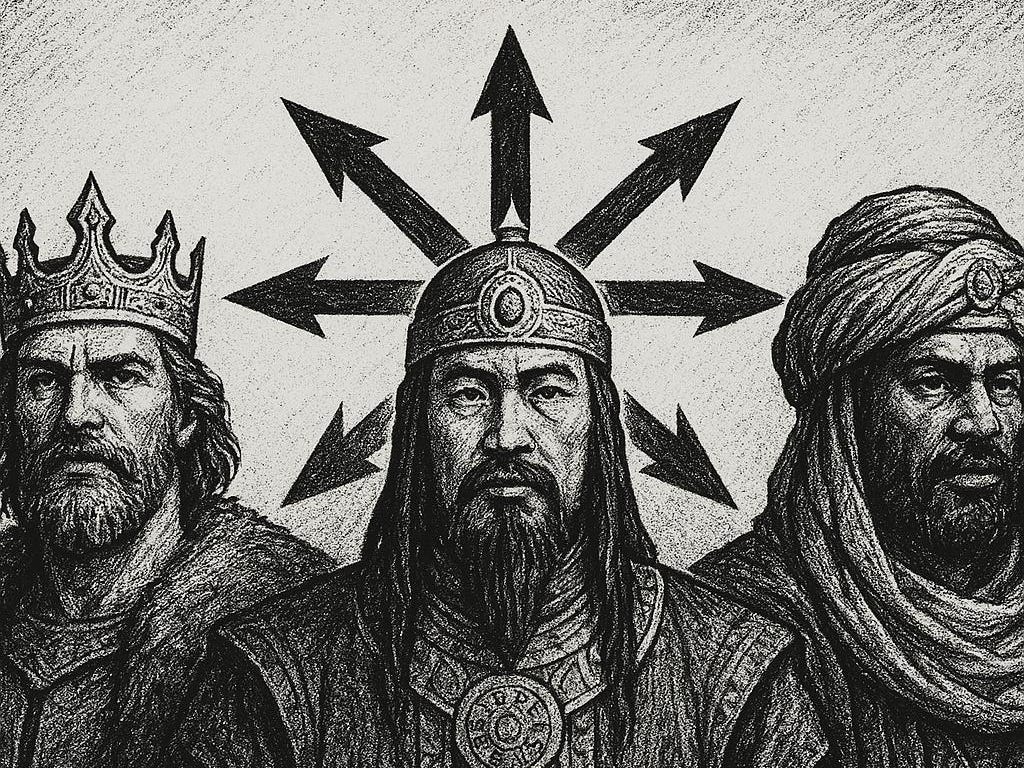Darwinian Multipolarity
Multipolarity means new hegemons, not equal states.
Constantin von Hoffmeister argues that Putin’s vision of equal states under international law is a fiction, since multipolarity is driven by Darwinian struggle and the rise of new regional hegemons.
Vladimir Putin raised his voice at the Shanghai Cooperation Organisation (SCO) Summit, painting a dream of parity. He insisted that multipolarity does not bring new dominants, that the tables of BRICS and the SCO host equals only, each state seated on level ground. He spoke of international law as the great balancer, declaring that Russia, China, India, and smaller states alike should share one footing, as if the wolf, the ox, and the hare could graze in peace under the same sky. He claimed multipolarity means shared rights, not new hegemons, and that no empire should emerge from the shifting world order.
Multipolarity is the theater where new beasts roar and claw their way into dominion. Putin speaks of equality, of states as children sitting at one table, sipping tea from the same chipped cups, while reality smashes crockery across the floor. Darwinian principles guide this world: the strongest climb, the weaker fall, and balance comes through teeth and talons. The birth of multipolarity does not abolish hierarchy; it creates it anew, replacing the frozen empire of one master with the rivalries of several. Regional spheres harden into armored shells, each charged with defending its own turf. A flock of predators cannot promise equality when blood and territory mark the real measure of power.
Multipolarity breathes only when hegemons rise. Without them, the concept remains an empty ritual, a ghostly word whispered in sterile chambers. The United States carved its zone long ago, Mexico and Canada chained to its orbit. Russia stretches over Eurasia, its claws scraping Central Asia and Eastern Europe. China towers across Asia, counting its factories as battalions. India grows restless, sharpening its demographic spear. Each hegemon claims what history, geography, and sheer survival dictate. This is not a mistake in the system; it is the system. Multipolarity means exactly the emergence of new overlords, each born from struggle, each imposing its own logic of strength.
Darwin smiles at this landscape. The law of survival animates diplomacy as much as jungles and savannahs. Empires and states evolve, clash, adapt, and expand. International law offers no shelter, only illusion. A small state may sign documents declaring parity with a colossus, yet rivers of steel and pipelines of gas dictate otherwise. Equal footing cannot exist when mass and force tilt every stage. The wolf and the lamb graze in the same pasture only until hunger reasserts the law of nature. Multipolarity honors this truth. It codifies natural inequality into a system of rival spheres, each held together by command, by discipline, by the will to dominate.
The complete opposite of Putin’s words shines through the fog. Multipolarity equals hegemony multiplied, not abolished. It is the fracturing of one throne into several, each ruler crowned by circumstance and defended by an arsenal. To pretend otherwise is to mimic Western liberal slogans, a chorus of empty fairness chanted to disguise expansion. In truth, multipolarity gives the world its new masters. This logic is unbreakable: only by birthing new dominants can the age of one empire end. Hegemons will rise, as they always do, because the Darwinian rhythm of history beats harder than any declaration of equality.
This article was originally published here.



We are now in the time of Hegemons made up of a mix of metal and sand. Fragility. Short cycle.
Excellent analysis.